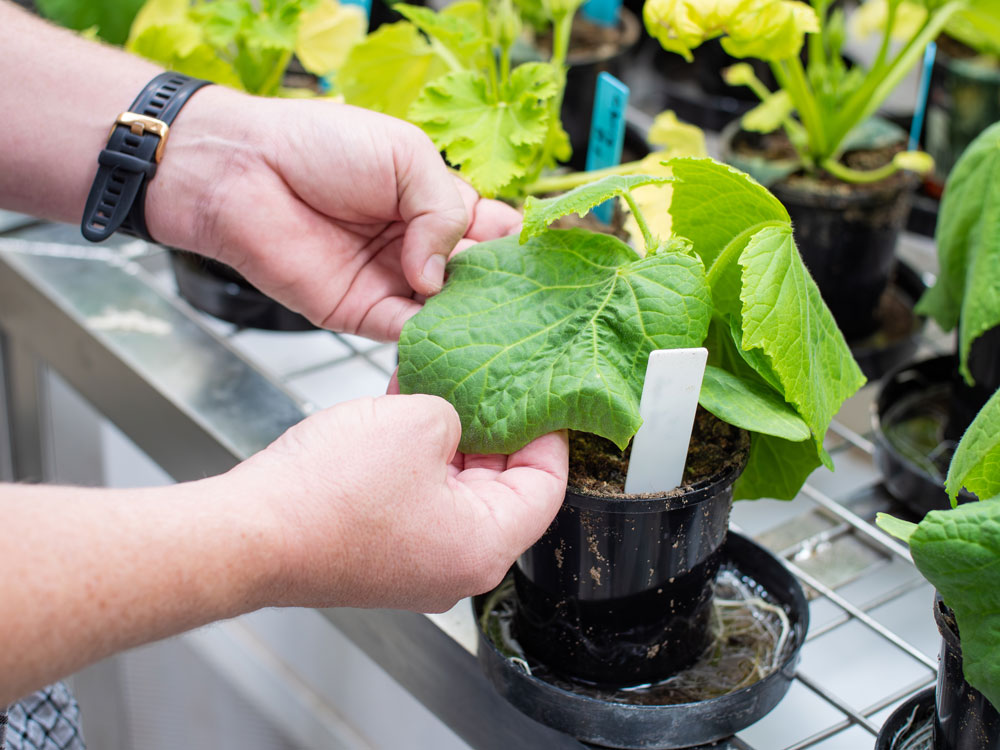Queensland, Australia
October 28, 2025
A chemical-free and cost-effective way to tackle viruses in Australia’s multi-billion-dollar vegetable industry is the focus of a 5-year project being led by The University of Queensland.

Dr Mark Jackson and Dr Nipuni Thanthrige in the growth room. Image: Megan Pope, UQ.
Dr Mark Jackson from UQ’s Queensland Alliance for Agriculture and Food Innovation said rather than concentrating on controlling the insects that spread viruses, the team would identify molecules that prime defensive gene pathways in plants.
Some of the viruses we’re looking at are transmitted so quickly that traditional methods like insecticides can’t contain the spread,” Dr Jackson said.
“Initially, we’re looking at papaya ringspot virus, which affects zucchini and other vegetable crops in Queensland.
“The industry wanted innovative approaches to manage these problems so we started thinking about what molecules might induce defence gene pathways in plants at the very early stage of growth when the plants are most vulnerable.”
Designed to safeguard Australia’s $5.7 billion vegetable industry, the project is funded through Hort Innovation, the grower-owned, not-for-profit research and development corporation dedicated to advancing Australia’s horticulture sector.
This initiative will focus on identifying the risks posed by viral diseases and developing innovative, sustainable solutions to manage them.
Dr Jackson said considering virus management, plant defence peptides or plant growth-promoting bacteria could be a key to solving the problem.
“We’ll use molecular biology tools to look for peptide elicitors, which are molecules that simulate the presence of a virus, triggering a defence mechanism and allowing the plant to fight back,” he said.

Trial plant in growth room at UQ. Image: Megan Pope, UQ.
“We’ll also look at beneficial bacteria from vegetable root systems.
“It’s just like priming an immune defence in the plants.
“We’re hopeful of success and already setting up the required high-throughput assays to find peptides and beneficial microbes to prime the defence response and also enhance growth.
“It’s exciting to have support from Hort Innovation and the Department of Primary Industries to identify a sustainable pathway to control a wide range of viruses.”
Hort Innovation CEO Brett Fifield said the project combined cutting-edge science with farming objectives.
“This research will support reduced reliance on chemical treatments by offering growers practical, eco-friendly virus control options,” Mr Fifield said.
“It will also enhance crop resilience and productivity, helping to future-proof farming systems against emerging viral threats.”
The project is funded by Hort Innovation using the research and development levies and contributions from the Australian Government, and the Department of Primary Industries.